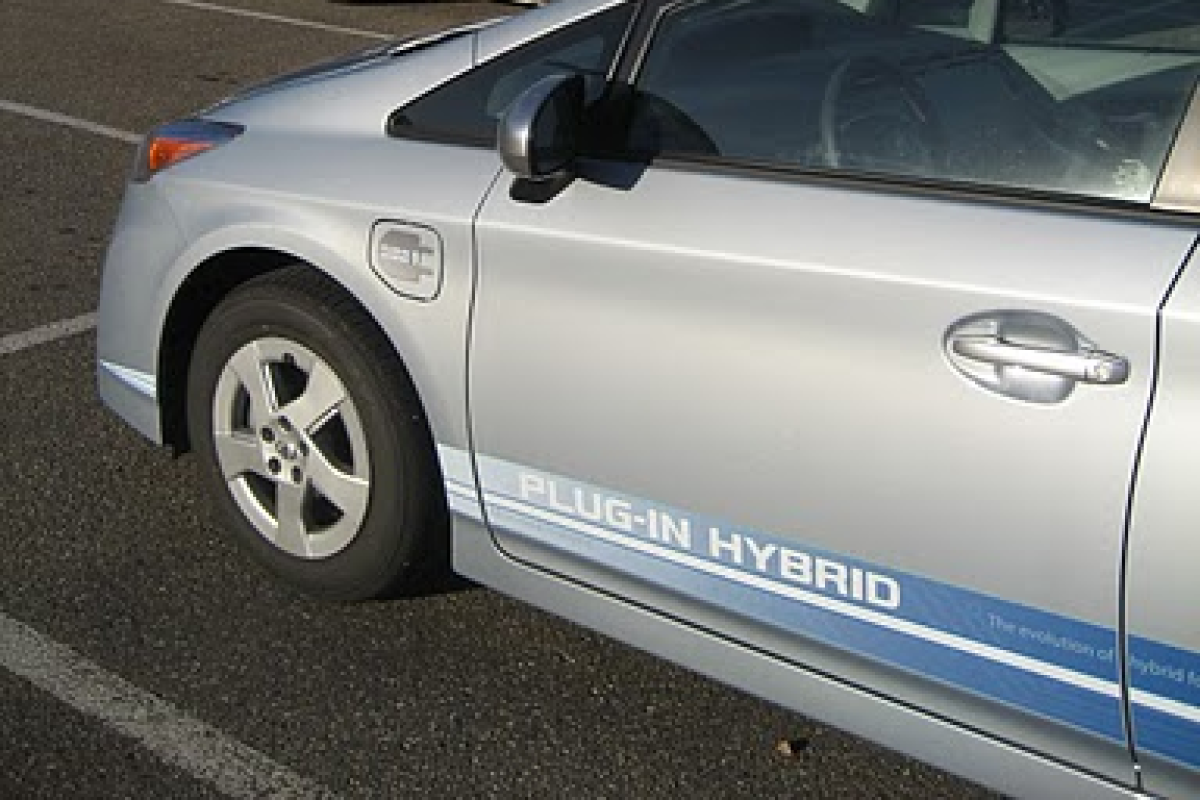Research Groups
Prof. Erickson’s research group focus on modeling and design of power electronics components and systems.
His research has spanned numerous areas within power electronics, and has included collaboration with many students and colleagues. Research results are arranged in the following broad topics:
- “A Microinverter for Building-Integrated Photovoltaics,” IEEE Applied Power Electronics Conference
- “Characterization of Power Optimizer Potential to Increase Energy Capture in Photovoltaic Systems Operating Under Nonuniform Conditions,” IEEE Transactions on Power Electronics
- “Module Mismatch Loss and Recoverable Power in Unshaded PV Installations,” 38th IEEE Photovoltaic Specialists Conference
- “High Weighted Efficiency in Single-Phase Solar Inverters by a Variable Frequency Peak Current Controller,” IEEE Transactions on Power Electronics
- "A 98.7% Efficient Composite Converter Architecture with Application-Tailored Efficiency Characteristic," IEEE Transactions on Power Electronics
- “Design of a High Efficiency 30 kW Boost Composite Converter,” IEEE Energy Conversion Congress and Exposition
- "Electrified Automotive Powertrain Architecture Using Composite DC-DC Converters," IEEE Transactions on Power Electronics
- “SiC Electric Vehicle Composite Boost Converter with 23 kW/L Power Density,” IEEE Applied Power Electronics Conference
Prof. Maksimovic’s research group focuses on achieving significant system-level advances in energy efficiency and renewable energy sources via smart power electronics.
Power electronics is the technology that ties wind turbines and photovoltaics to the electric power grid, propels hybrid and electric vehicles, powers a countless variety of electronic systems, and makes it possible to operate battery-powered mobile devices for many hours. In the Colorado Power Electronics Center, we are exploring ways to achieve significant system-level advances in energy efficiency and renewable energy sources via smart power electronics. Current research project topics include:
- Modular Wide-Bandgap String Inverters for Low-Cost Medium-Voltage Transformerless PV Systems, a project sponsored by DOE Solar Energy Technology Office in the Advanced Power Electornics Design for Solar Applications program. The project aims to develop a new PV architecture comprised of stackable modules with distributed controls. Team: U of Washington, CU-Boulder, NREL, Wolfspeed.
- A High-voltage, High-reliability Scalable Architecture for Electric Vehicle Power Electronics, a project sponsored by ARPA-E CIRCUITS program, has objectives to develop new composite SiC power converter technology that achieves high power and voltage conversion at ultra high efficiency and power density. The technology will be demonstarted on a multifunctional power system for electric vehicles. Team: CU-Boulder, Toyota, Wolfspeed, NREL.
- A Disruptive Approach to Electric Vehicle Power Electronics, a project sponsored by DOE Vehicle Technologies to develop a new modular power conversion approach that utilizes both silicon and wide band gap devices to address the fundamental power conversion, loss, and component stress mechanisms. Industry partner: Wolfspeed.
- Integrated power converters for photovoltaic (PV) modules in PV power systems, an ARPA-E Solar ADEPT project. Team: CU-Boulder, NREL, Nuvotronics. The project goals are to show how sub-module integrated DC-DC converters can substantially improve efficiency and reduce cost in all PV systems, including various types of PV modules in residential, commercial or utility-scale systems.
- Robust cell-level modeling and control of large battery packs, an ARPA-E AMPED(Advanced Management and Protection of Energy Storage Devices) program. Team: USU, CU-Boulder, UCCS, NREL, Ford. Our objectives are to demonstrate substantial improvements in battery packs using distributed intelligent power electronics performing advanced cell-level management and control algorithms.
Prof. Hodge's research focuses on the modeling and simulation of power and energy systems, with an emphasis on the operational and planning challenges posed by the integration of renewable energy sources, such as wind and solar power.
Projects
- Peña Station Next Project, a developing district close to the Denver International Airport that has ambitious goals to become a net-zero energy smart and sustainable community. In collaboration with NREL, Panasonic, Fulenwider, and Xcel Energy we have been exploring how different building and electricity storage and generation options can accomplish this goal.
- The Solar Uncertainty Management and Mitigation for Exceptional Reliability in Grid Operations (SUMMER-GO) seeks to increase the reliability and lower the costs of operating the electric grid when there is large contribution from solar power plants.




